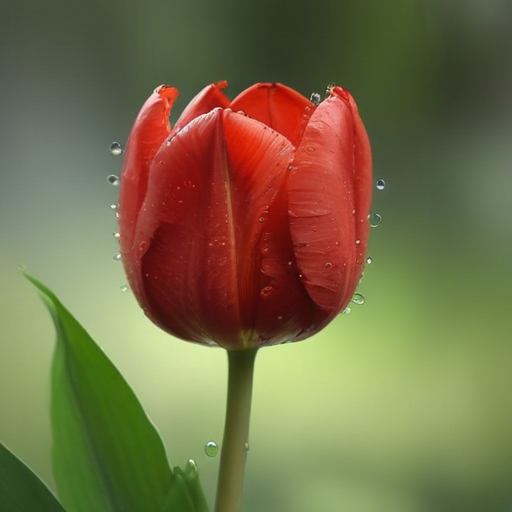Tulips, unlike their traditional Valentine’s Day counterpart, roses, continue to evolve and change after being cut. This unique quality creates a captivating experience, as noted by floral expert Ms. Culver, who finds a poetic beauty in how tulips unfurl and adjust to the shape of their vase, swaying gently with the sunlight.
While red roses are synonymous with romantic love, tulips carry their own rich symbolism. In the context of the Victorian flower language, they represent passion, and their meanings can vary significantly based on color. For instance, pink tulips convey caring sentiments, purple symbolizes royalty, and red tulips are often seen as a bold declaration of love. This versatility makes tulips an excellent choice for celebrating all forms of affection on holidays like Valentine’s Day, which has expanded beyond romantic relationships to honor friendships, family ties, and even pets.
Andrew Miller, the owner of Tulip Valley Farms in Washington State, emphasizes this flexibility: “I can give tulips to a buddy of mine that, you know, we go hunting together.” This sentiment shows that tulips can convey camaraderie and platonic love, offering an alternative approach to floral gifting.
Additionally, tulips boast several advantages over roses, particularly from a sustainability perspective. Allan Visser, a third-generation tulip farmer from the Netherlands, highlights that tulips require less energy to grow, making them a more environmentally friendly option. As demand for tulips continues to rise globally, especially in the lead-up to special occasions like Valentine’s Day, Mother’s Day, and Easter, more tulip bulbs are being imported to the United States from the Netherlands, which remains the primary producer of these vibrant flowers.
In summary, tulips not only enhance the beauty of any setting they adorn but also represent a wide range of sentiments that can suit various relationships. Their sustainable qualities and growing popularity indicate a bright future for these stunning blooms in the floral industry.
